- Budget deficit narrows to 6.1% in 2021-2022. (Economy)
- Climate change is putting Egypt’s honey industry under threat. (Going Green)
- EGX falls to lowest level since November 2016 amid global risk-off. (What We’re Tracking Today)
- GASC in talks to purchase wheat directly from suppliers. (Commodities)
- As representatives head for summer recess tomorrow, they gave taxpayers some relief and slept on the Competition Act. (Legislation Watch)
- Introducing Enterprise’s first event. (What We’re Tracking Today)
- Iqat gold mine will start production in 4Q2022. (Mining)
- UAE digital bank YAP plans to set up shop in Egypt next year. (Startup Watch)
- Commodity prices are falling back — but is it enough to tame inflation? (Planet Finance)

Tuesday, 5 July 2022
AM — Budget deficit narrows to 6.1% in 2021-2022.
Plus: EGX falls to lowest level since 2016
TL;DR
WHAT WE’RE TRACKING TODAY
It’s hump day on the last week before Eid, ladies and gentlemen. That may just be enough to make up for news coming out of the region’s capital markets.
A week off for the public sector: Public sector workers will be off from 9-14 July in observance of Eid El Adha, the Madbouly cabinet announced yesterday.
Could the private sector follow suit? We’re still waiting to hear from the Manpower Ministry — as well as from the central bank and the EGX — on their plans for the Eid vacation.
No matter how many days off we get, let’s vacation responsibly, as the Health Ministry is saying that covid cases are up 7% this week. We have more in Last Night’s Talk Shows.
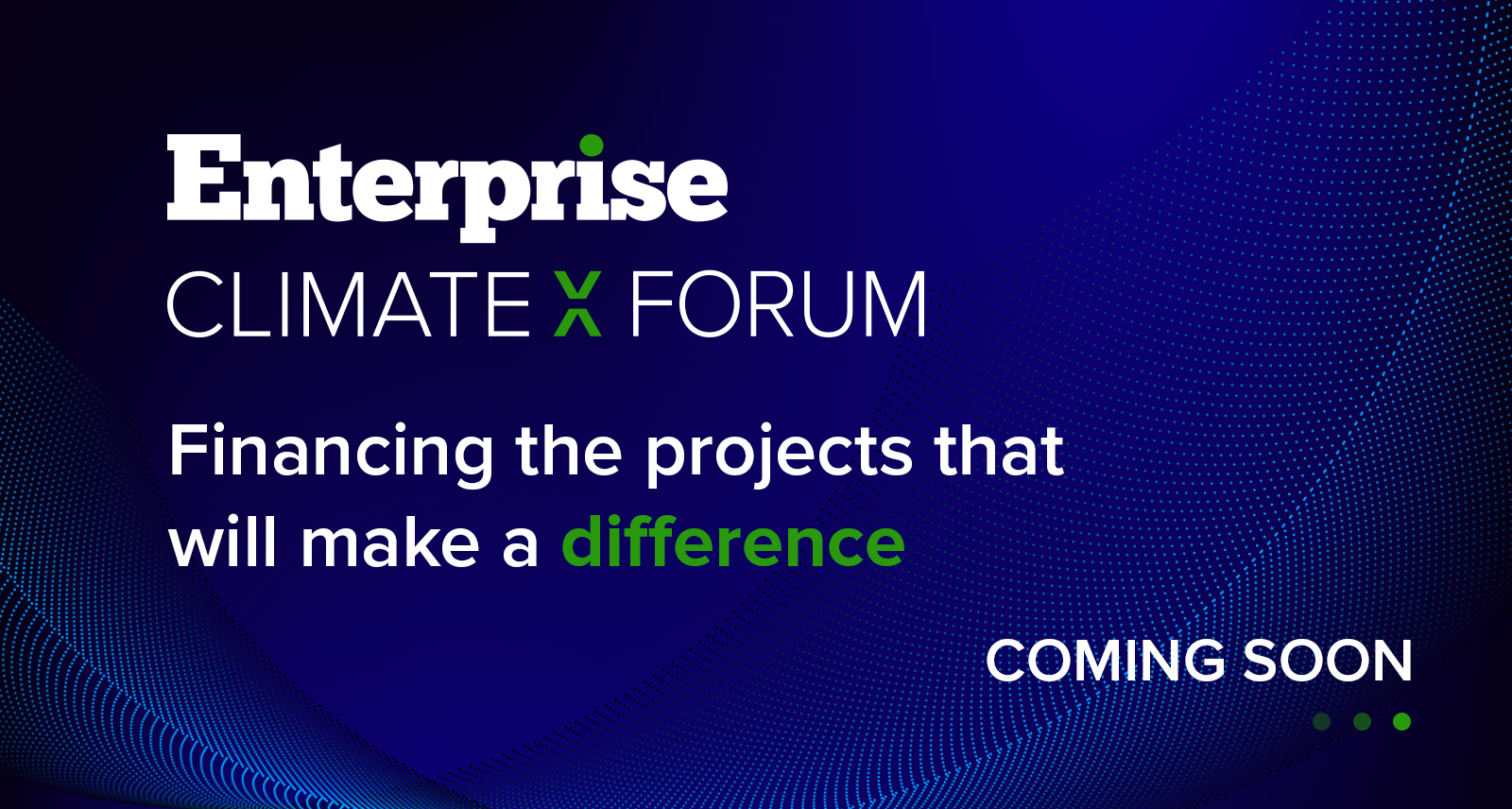
** BEFORE WE CONTINUE, we’re very excited to announce our first official event. Longtime readers will know we often hold lunches and breakfasts with small groups of readers. We’re going much bigger later this year.
This fall, we’re gathering an exclusive group of CEOs, C-suite officers, finance folks and more to talk about how we’ll finance green projects in Egypt in the wake of COP27. The idea is to keep the conversation going post-COP and dive into the nitty gritty of the financing tools, laws, projects, problems and ideas that will be necessary to drive a fundamental shift in our economy.
Want to learn more? Drop us a line. Whether you’re interested in attending or want to discuss how to put your brand front and center, reach out to us on climatex@enterprisemea.com.
Stay tuned for more details…
THE BIG STORIES at home this morning-
#1 Preliminary budget figures for FY 2021-2022 are in: The government smashed its budget deficit target last year, narrowing the gap to 6.1% of GDP from 7.4% the year before. The Finance Ministry originally set out to achieve a 6.7% deficit by the end of the fiscal year in June.
#2 The EGX30 hit its lowest level since November 2016 yesterday as a sell-off among foreign investors caused by worries over soaring global inflation, rising interest rates and a possible recession in the US pushed the market deeper into bear territory. The benchmark index fell 3.6% during trading, marking the biggest single day loss since February and leaving it down 28% from its recent peak in January. The sell-off was widespread, with every company on the EGX30 ending the session in the red.
It’s not just us: The intensity of the sell-off on the EGX has coincided with a reversal of fortunes for bourses in the Gulf, which up until May had been shielded from the turmoil gripping global equities by surging oil prices. Following a strong start to the year, shares in Saudi Arabia, the UAE and Qatar have fallen back dramatically over the past two months as concerns over the global economic outlook overshadow the oil revenues flowing into the Gulf.
#3- Our honey industry is at risk thanks to climate change. We break down the hows and whys in today’s Going Green.
WHAT’S HAPPENING TODAY-
It’s last day of the House before the summer break tomorrow: The House will wrap up any unfinished business during today’s session before breaking for the summer on Wednesday, according to Youm7. Typically, the end of the legislative cycle coincides with the end of the fiscal year, but this year’s session has dragged on into July. We break down some of what done yesterday — which did not include the Competition Act amendments — in today’s Legislation Watch below.
UP IN THE HOUSE TODAY- Government-drafted amendments to the Consumer Finance Act aimed at providing greater fraud protections to consumers, according to a note seen by Enterprise. We have more on the
Public consultations on the state’s privatization plan resume today with the transport sector players discussing the state ownership policy document that outlines its privatization plans for the industry.
Sunday’s session saw automotive players and other engineering industry reps lay out their feedback and recommendations. Among the key suggestions was for the government to replicate the recently launched automotive strategy for other industries and granting more “golden licenses” to investors. Other recommendations made include the state ramp up its investments in EV manufacturing, EV batteries, wind turbines and solar panels, and raw materials, while others suggested that the state exits from services like car licensing inspection, export certificate accreditation labs, and car recycling.
REMEMBER- Every Sunday and Tuesday see workshops on how privatization plans will affect specific industries. You can find more details on the schedule of the meetings here.
The national dialogue kicks off today when Diaa Rashwan, the general coordinator of the dialogue, convenes the first meeting of the 19-member board of trustees running the process, according to the State Information Service. Board members include lawmakers, journalists, and political and economic experts. President El Sisi also signaled the beginning of the dialogue in a report picked up by Al Oula (watch, runtime: 2:18).
Need a refresher on the national dialogue? You can read our explainer here.
THE BIG STORY ABROAD- Another mass shooting in the US is front page news across much of the global media this morning. Six died and 30 were injured after a gunman opened fire on an Independence Day parade in Chicago yesterday (AP | Reuters | NYT | Washington Post | WSJ)
A shooting in the Danish capital is also getting a lot of attention: A gunman killed three and wounded several others at a mall in Copenhagen on Sunday. A 22-year-old Danish has been arrested following the incident. (Reuters | NYT | BBC | CNN)
Also worth noting:
- Crisis in Germany: The German government is preparing legislation to bail out the country’s struggling energy companies as it looks to avert a crisis caused by surging gas prices. (FT)
- The crypto collapse continues: Another crypto lender — Vauld — is preventing investors from withdrawing funds in a bid to stay afloat amid the crypto market meltdown. (CNBC)
|
CIRCLE YOUR CALENDAR-
The fuel pricing committee could meet this week to review fuel prices for the third quarter.
Other news triggers to keep an eye on this month:
- PMI: Data measuring activity in Egypt’s non-oil private sector will drop tomorrow, Wednesday, 6 July.
- Foreign reserves: Foreign reserves figures will be out sometime this week.
- Inflation: Inflation data for June will likely land as early as this week.
Check out our full calendar on the web for a comprehensive listing of upcoming news events, national holidays and news triggers.
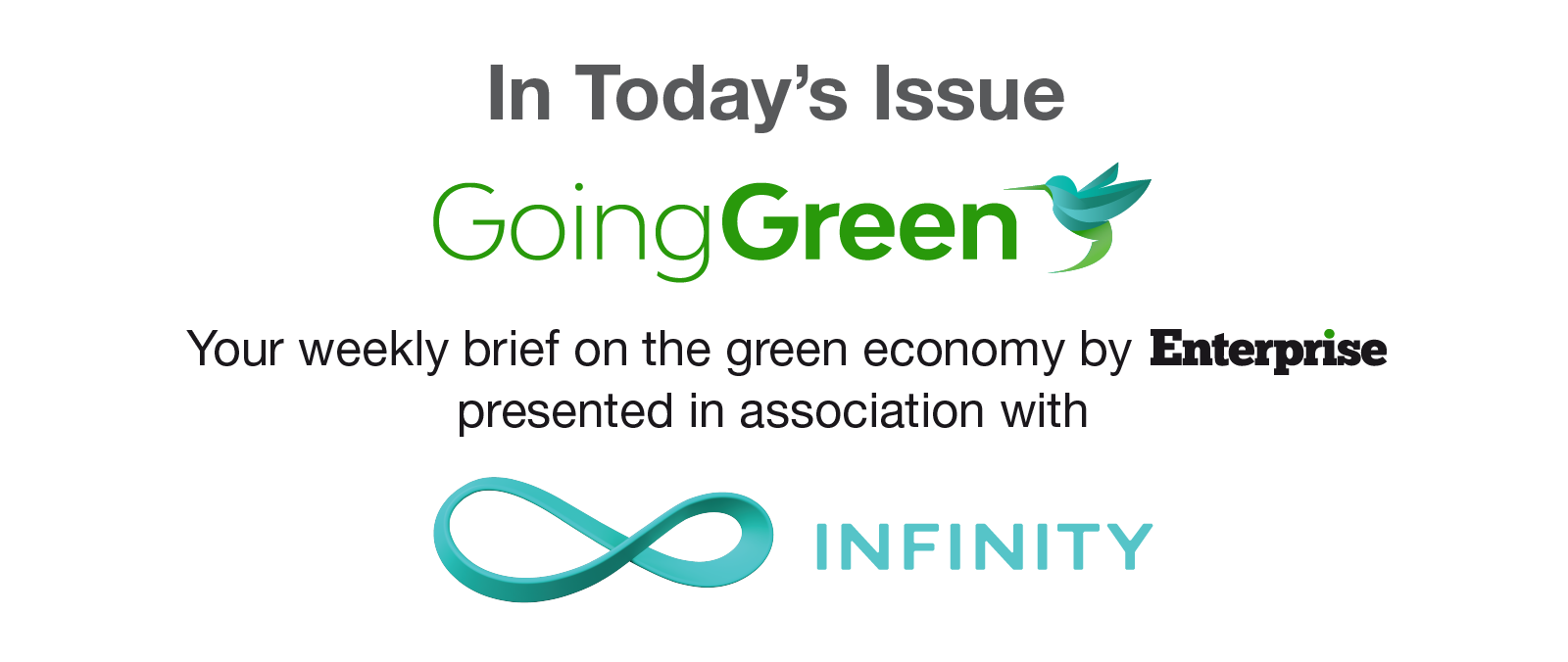
*** It’s Going Green day — your weekly briefing of all things green in Egypt: Enterprise’s green economy vertical focuses each Tuesday on the business of renewable energy and sustainable practices in Egypt, everything from solar and wind energy through to water, waste management, sustainable building practices and how you can make your business greener, whatever the sector.
In today’s issue: Climate change is putting Egypt’s honey industry under threat. Egypt’s production of honey, a food that has been deeply rooted in local culture for thousands of years, is coming under increasing threat. The country is an exporter, but faced with the existential challenge of climate change and rising economic problems at home, production is on the decline, industry sources tell Enterprise.
As the Eid vacation approaches, Somabay has an exciting lineup of events and activities planned for family and friends alike; making sure to keep you entertained and captivated all week long. From beach BBQs, live entertainment and sangria sundowns, to fitness and kids entertainment, to adrenaline-pumping games of footgolf, we’ve got you covered. Let’s celebrate happiness and togetherness for a beautiful life full of festivities. Eid Mubarak.
ECONOMY
Budget deficit narrows to 6.1% in FY2021-2022

Gov’t beats FY2021-2022 budget deficit target -preliminary figures: The budget deficit narrowed to 6.1% of GDP in FY2021-2022 from 7.4% the year before, according to preliminary figures released by Ittihadiya yesterday.
This is significantly smaller than the 6.7% target in the state budget, and comes despite surging food and energy prices adding bns of USD in unexpected costs during the second half of the year.
Remember: GDP is likely to have grown at a faster than expected rate last year. The most recent government forecast has growth coming in at 6.2%, above the initial 5.4% prediction in the budget, helping to explain how the deficit figure fell so far beyond the original target. Ittihadiya did not include a preliminary full-year GDP figure in the statement.
The primary surplus fell to 1.3% of GDP during the year from 1.5% in FY 2020-2021, according to the statement. The government had initially targeted a 1.5% surplus last year. This marks the fourth consecutive year during which the state recorded a primary surplus.
Debt servicing costs as a percentage of GDP fell to 32.8% from 35.8% the year before. A debt-to-GDP figure for the full year wasn’t provided.
Going forward: The government is targeting a 6.1% budget deficit and a 1.5% primary surplus in the current fiscal year. It wants to bring the budget deficit down to 5.0% and achieve a 2.0% primary surplus over the next four years.
INFRASTRUCTURE
…As Suez Canal sees record revenues

Suez Canal revenues jumped 20% to a record USD 7 bn in FY2021-2022, from USD 5.84 bn the previous year, Suez Canal Authority (SCA) head Osama Rabie said yesterday. The increase came on the back of a 16% rise in the number of ships transiting the canal to 22k, and a 11% jump in annual net tonnage to reach 1.32 bn tons. Revenues in 2021 rose 20% to USD 6.3 bn.
Thank the commodities crunch + war in Ukraine: Rabie said the global spike in oil prices and freight rates had combined with the Russia-Ukraine war to make transit through the canal more attractive than other routes — as he told us back in April. The canal registered its highest ever monthly revenues in May and June of this year, Rabie said. He also attributed the record income to successful marketing policies meant to draw in new ships. Traffic was bolstered during the fiscal year after the SCA extended a range of incentives and reductions introduced in 2020 to counter the global trade slowdown due to covid-19. Those cuts have since been rolled back for most ships.
More to come? The canal may witness an increase of some EGP 20-22 mn per month in revenues as traffic of liquefied natural gas tankers and bulk ships carrying grain increases in light of the war in Ukraine prompting alternative markets to increase exports, SCA head Osama Rabie told Enterprise earlier. LNG carriers began paying the full rate to transit in March.
COMMODITIES
GASC could purchase wheat directly from suppliers

Egypt is lining up its next wheat buy — this time sans tender? GASC is looking to purchase wheat directly from commodity traders outside the normal tender process, Reuters and Bloomberg reported yesterday, citing traders. The state grain buyer yesterday invited offers from the trading houses for an undisclosed amount of wheat for shipment in September and October, they said. The offers should be valid until today. GASC typically purchases wheat via international tenders but in May the cabinet gave the go-ahead for the authority to buy directly from suppliers.
The Fab Four: GASC is reportedly only interested in direct offers for wheat from Romania, Bulgaria, Russia and France. These are the same four countries from which we last week bought a massive 815k tons of wheat through a normal tender process. All four are emerging as important suppliers to Egypt, which has bought shipments exclusively from them in the three successful international tenders since Russia’s war in Ukraine upended the global grain markets in February. Russian and Ukrainian wheat had accounted for around 80% of our imports before the war broke out.
Prices have fallen significantly in recent weeks: Chicago futures are now trading at their lowest price since February, having fallen by a third since the middle of May, when prices rose to a 14-year high spurred by the conflict. GASC bought the wheat in its latest tender at around USD 430-440 per ton on a cost and freight (C&F) basis, with the cheapest prices coming from Romania and the most expensive from France.
MINING
Iqat gold mine will start production in 4Q2022

Production at the Iqat gold mine could begin in 4Q2022, the chairman of the state-owned Shalateen Mining Company told Bloomberg Asharq on the sidelines of the Egypt Mining Forum yesterday. The deposit is estimated to hold around 1.3 mn ounces of gold, and USD 300 mn has so far been invested, Ashraf El Amir told the news service.
Shalateen Mining will become the third operator in Egypt when production begins later this year, joining Centamin and the Hamash Company, a JV between the state and Cyprus’ Matz Holding. The company is 100% state-owned: the Egyptian Mineral Resources Authority (EMRA) owns 35%, the military’s National Service Projects Organization holds 34%, the National Investment Bank owns 27% and the Egyptian Company For Mineral Resources holds 7%.
A new international gold and minerals exploration tender could be launched in the second half of August, El Amir told Asharq, adding that the tender is pending environmental and security approvals. Shalateen had reportedly been planning to launch an international auction this summer for at least five areas in the Eastern Desert, including part of the Iqat region.
Background: The gold deposit located in the Eastern Desert’s Iqat region was discovered in 2020. Iqat Gold Mining Company — a joint venture company set up by the Egyptian Mineral Resources Authority and Shalateen — is working on developing the concession. The Oil Ministry said at the time of its discovery that more than USD 1 bn could be invested over 10 years to develop the deposit.
ALSO FROM THE FORUM-
EMRA signed three mining agreements: One agreement was signed with a subsidiary of Italian oil giant Eni to explore mining minerals used in clean energy projects, while the other two were signed with the AmCham Egypt and geochemical lab MSALABS on training mining and lab workers, the Oil Ministry said in a statement.
STARTUP WATCH
Let’s all say hello to YAP
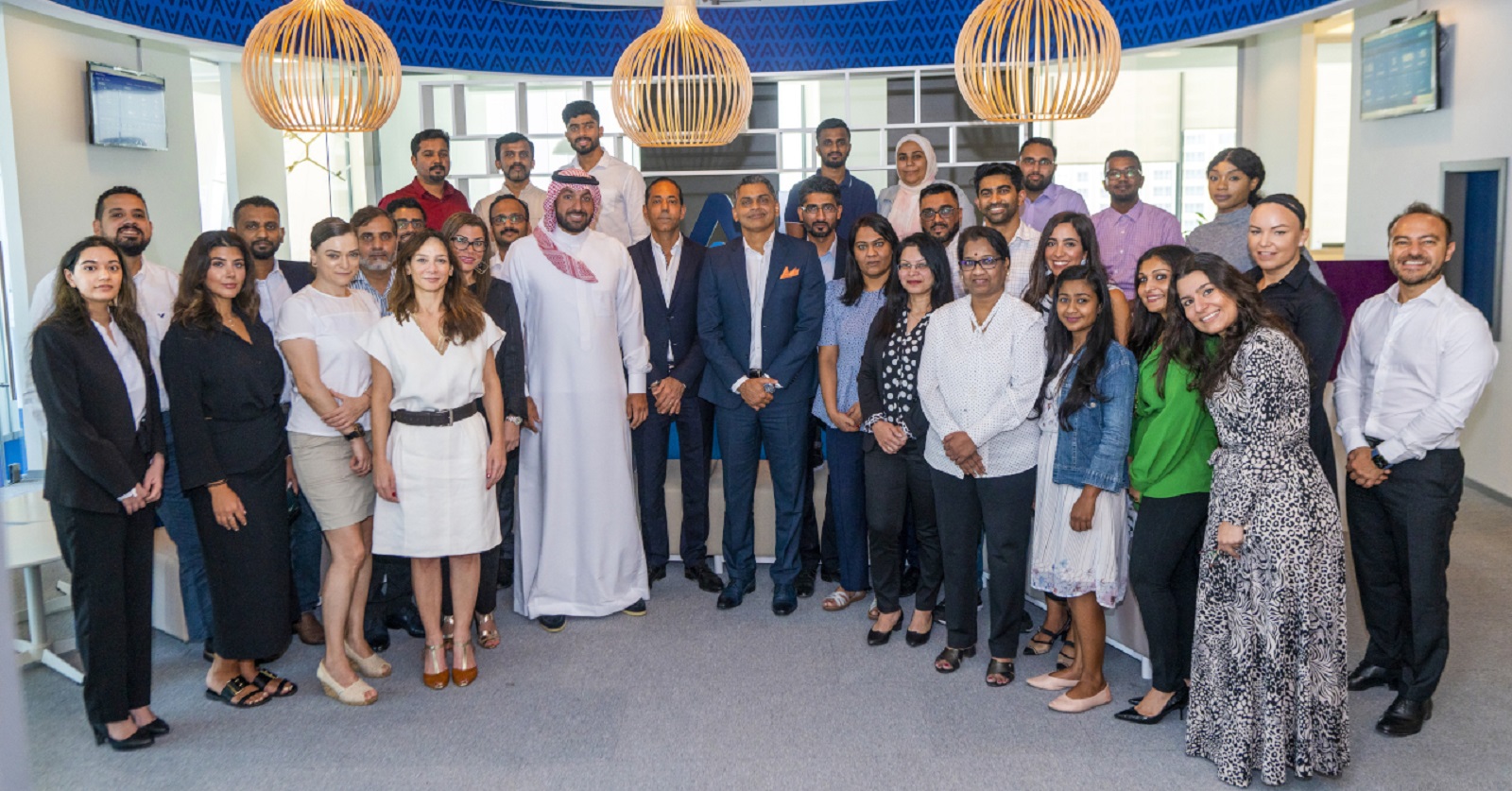
UAE fintech YAP plans to expand into Egypt next year after raising USD 41 mn in funding led by Saudi Arabia's Aljazira Capital, Abu Dawood Group, Astra Group and Audacia Capital, according to a press release picked up by Zawya. The startup hopes to raise another USD 20 mn to fuel its expansion, with plans to close its series A round before the end of the year, Reuters reports.
YAP will use the funds to expand into Egypt, Saudi Arabia, Pakistan and Ghana: The startup is currently piloting its services in Pakistan and Ghana and hopes to launch in the two countries by the end of 2022, and is eyeing a soft launch in Saudi Arabia in October ahead of a full launch in 1Q 2023. “We just got the EMI (electronic money institutions) license in Pakistan and PSP (payment service provider) in Ghana, same thing in Saudi Arabia,” co-founder and CEO Marwan Hachem told Reuters.
We’ve been getting a lot of interest from fintechs overseas: Flexxpay, another UAE-based fintech platform, recently launched in Egypt, while China-backed fintech player OPay in April got preliminary approval from the Central Bank of Egypt (CBE) to issue pre-paid cards in partnership with Masria Digital Payments (MDP). Other Africa-focused fintechs like Kenya’s Churpy and ImaliPay have also said recently they are preparing to set up shop in Egypt.
About YAP: Launched in 2021, the digital banking platform is partnered with Emirati lender RAK Bank and currently has over 130k registered users. It is developing “a new multi-currency offering, products for children and households, equity trading, loans and buy-now-pay-later” service, according to the statement.
LEGISLATION WATCH
Tax payers get break on late fees + Changes to competition Act delayed
Taxpayers who are in arrears to the government will catch a bit of a break this year after representatives approved amendments that will reduce late payment fees due before 31 August by 65%. The bill had originally been set to waive 50% of fees due before 15 July, but the Finance Ministry moved to make it more generous in yesterday’s session after MPs called for more support to taxpayers amid the fallout from the crisis in Ukraine. The move comes as the House of Representatives looks to close out this legislative cycle today.
What about amendments to the Competition Act? They’ve been kicked into the long grass: MPs won’t take a vote on proposals to hand the Egyptian Competition Authority (ECA) greater powers over mergers and acquisitions until the next legislative session, which begins in October. Negotiations over key parts of the amendments to the Competition Act remained at a standstill yesterday, with the ECA not seeing eye to eye with the central bank, the Financial Regulatory Authority and the EGX over how much power it should have to regulate M&As.
Want more on the proposed changes to competition rules? We have an explainer here.
Railway money: The House also approved a KWD 750k (USD 2.45 mn) grant from the Kuwait Fund for Arab Economic Development to the International Cooperation Ministry to prepare feasibility studies for a rail connection between Egypt and Sudan.
MOVES
Mobile payments platform TPay Mobile has appointed Gaston Aussems (LinkedIn) as its new CEO, according to a press release (pdf). Founder and current CEO, Sahar Salama, will now serve as the company’s chairwoman (LinkedIn). Aussems moves to the company after serving as the CEO of European payments platform Mollie for the past seven years.
Find out more about how TPay helped put Egypt on the fintech map from Salama, who discussed her journey with us during Season 1 of our podcast series Making It.
LAST NIGHT’S TALK SHOWS
Finance Minister Mohamed Maait was back on the airwaves last night, phoning in to Ala Mas’ouleety to discuss the preliminary FY 2021-2022 budget figures released yesterday, which saw the budget deficit narrow markedly to 6.1% of GDP and the primary surplus fall to 1.3% (watch, runtime: 39:25). The figures also received coverage from Al Hayah Al Youm (watch, runtime: 4:32). We have more on the figures in this morning’s news well, above.
Worth noting from the interview:
- The war in Ukraine has almost doubled our import bill: Egypt is currently spending USD 9.5 bn every month on imports, up from USD 5 bn prior to the war, the minister said.
- No fresh news from the IMF: Maait said that talks with the Fund over a fresh assistance programme are continuing but didn’t provide new info on how the negotiations are progressing or when we could see a breakthrough.
- In the alternative universe: If it hadn’t been for that coronavirus, Egypt would be running a 5% budget deficit by now, he said.
Speaking of the rona…: Egypt saw a 7% increase in covid cases last week, which the Health Ministry attributed to the outbreak of omicron sub-variants that are more transmissible, a decline in immunity, and members of the public no longer following precautionary measures. Health Ministry spokesman Hossam Abdel Ghaffa told Kelma Akhira’s Lamees El Hadidi (watch, runtime: 2:13) that the pandemic is still present among us and people need to ensure they are up to date with their covid vaccinations and continue to wear face masks. Ittihadiya health advisor Mohamed Awad Tag El Din said we’re seeing a 7-8% daily increase in local covid cases, during a phone-in with Ala Mas’ouleety (watch, runtime:15:49).
EGYPT IN THE NEWS
Human rights is leading the conversation on Egypt in the foreign press this morning: The families of Alaa Abdel Fattah and Karim Ennarah are calling on UK Foreign Secretary Liz Truss to pressure Sameh Shoukry when they meet this week. The Times has published a piece written by Ennarah’s British wife calling for an end to the travel ban on her husband, while the Guardian reports that Abdel Fattah’s family are lobbying the UK government to secure his release from prison. Meanwhile, AFP reports that researcher Ahmed Samir has been sentenced to three years in prison for spreading “false news” on social media.
Also making headlines:
- Alexandria has opened the country’s first beach for the visually impaired, with paths in the water to assist in swimming. (Sky News Arabia)
- The recent inflow of investment from our friends in the Gulf has a geopolitical as well as economic dimension. (The Africa Report)
- Pyramid pics: Travel photographer Tanveer Badal snaps a fresh perspective of the Giza Pyramids. ( New York Times)
ALSO ON OUR RADAR
One step closer to a clearer Ring Road: The government has begun construction of the bus rapid transit system (BRT) on the Ring Road, with the General Authority for Roads and Bridges yesterday showcasing the Al Salam Station in a video on its social media (watch, runtime: 1:45). The BRT system on the Ring Road is part of a massive EGP 8 bn overhaul of the critical freeway, The project should be fully operational and ready for passengers by December.
Saudi dairy company Almarai is not considering acquiring a majority stake in Cairo Poultry as part of its expansion plans in Egypt, Bloomberg Asharq reported yesterday, while Cairo Poultry said that it hadn’t received any official offers in a disclosure (pdf) to the EGX on Sunday. Both stories deny a report by Al Shorouk at the weekend that the Saudi firm is considering bidding for a majority stake in the company.
Other things we’re keeping an eye on this morning:
- Real estate developer Marakez could soon receive an EGP 2.5 bn loan from the National Bank of Egypt (NBE), Banque Misr and Banque du Caire, a source with knowledge of the matter told Enterprise.
- Kuwaiti authorities have imposed new regulations on imports of Egyptian food, Al Borsa reports, citing a statement from the country’s Public Authority for Food and Nutrition (PAFN).
- Taqa Arabia and Abu Soma Tourism Development Company agreed to establish a solar-powered seawater desalination plant at Somabay. (Shorouk)
- Saudi budget carrier Flynas will launch its first direct flight between Cairo and the Saudi city of Al Ula in October. (Statement)
- Ezz Elarab Group has partnered with Ferrari to open a service center and showroom for the luxury car brand in Sheikh Zayed. (Press release, pdf)
PLANET FINANCE
Commodity prices are beginning to cool — and it’s stirring hope that inflation has peaked: Investors who piled into assets like fuel, corn and wheat to hedge against rising inflation have been making their exits, an indicator that a major contributor to wave of global inflation has begun to cool, the Wall Street Journal reports. “Moderating commodity prices are clear evidence that inflation is cooling,” one analyst said, pointing to the commodities that saw their prices soar during 2Q 2022 before ending the quarter at much lower levels. Natural gas prices had climbed more than 60% before ending the quarter 3.9% lower, Brent crude slipped from highs above USD 120 a barrel to end around USD 106, and grains ended the quarter cheaper too.
Russia and Iran are in a race to the bottom on crude prices: Iran is being pushed to slash its already cheap crude in a bid to compete with Russia, which in May became Beijing’s biggest oil supplier. With both Tehran and Moscow slapped with Western sanctions that significantly curtail their potential export markets, “the only competition between Iranian and Russian barrels may end up being in China, which would work entirely to Beijing’s advantage,” one analyst said. (Bloomberg)
ALSO FROM PLANET FINANCE-
- Turkey’s inflation rose to 78.6% y-o-y in June, up from 73.5% in May. While staggering, the figure is lower than analysts’ median forecast of nearly 80% in a Bloomberg survey. (Bloomberg)
- More rate hikes, this time from Israel: The Israeli central bank has delivered its third consecutive rate hike and the biggest in more than a decade, increasing interest rates by 50 basis points to 1.25% in a bid to tamp down inflation. (Bloomberg)
- Germany is facing some serious sanctions blowback: Germany is facing its worst economic crisis in decades, recording a monthly trade deficit for the first time in over three decades as the country struggles with surging energy prices and trade disruptions. Chancellor Olaf Scholz said that the country is being presented with an “historic challenge” and warned that “the crisis won’t pass in a few months.” (FT)
|
|
EGX30 |
8,686 |
-3.6% (YTD: -27.3%) |
|
|
USD (CBE) |
Buy 18.81 |
Sell 18.89 |
|
|
USD at CIB |
Buy 18.83 |
Sell 18.89 |
|
|
Interest rates CBE |
11.25% deposit |
12.25% lending |
|
|
Tadawul |
11,358 |
-0.9% (YTD: +0.7%) |
|
|
ADX |
9,305 |
-0.4% (YTD: +9.6%) |
|
|
DFM |
3,158 |
-1.4% (YTD: -1.2%) |
|
|
S&P 500 |
3,825 |
+1.1% (YTD: -19.7%) |
|
|
FTSE 100 |
7,233 |
+0.9% (YTD: -2.1%) |
|
|
Euro Stoxx 50 |
3,452 |
+0.1% (YTD: -19.7%) |
|
|
Brent crude |
USD 113.50 |
+1.7% |
|
|
Natural gas (Nymex) |
USD 5.88 |
+2.6% |
|
|
Gold |
USD 1,808.30 |
+0.4% |
|
|
BTC |
USD 19,897 |
+3.3% (YTD: -57.2%) |
THE CLOSING BELL-
The EGX30 fell 3.6% yesterday on turnover of EGP 640 mn (22.5% below the 90-day average). Foreign investors were net sellers. The index is down 27.3% YTD.
In the red: Ibnsina Pharma (-15.4%), Credit Agricole (-10.7%) and MM Group (-10.3%).
It’s another mixed open for Asian markets this morning: Shares fell in China despite rumors that the US might be about to ease some of its trade tariffs on Chinese products, while other bourses in the region rose. Stock futures point to European shares rising when markets open, as will shares on Wall Street, where financial markets are reopening after a three-day holiday.
DIPLOMACY
Madbouly, Al Mashat meet EIB VP: European Investment Bank (EIB) VP Gelsomina Vigliotti met with Prime Minister Moustafa Madbouly and International Cooperation Minister Rania Al Mashat yesterday to discuss the bank’s support for Egypt’s energy and food security, and climate cooperation ahead of the COP27 summit in November, according to statements here and here. Vigliotti is currently on a four-day visit to Egypt, and has attended the inauguration of the new phase of Metro Line 3, and met with senior officials from Banque Misr and the National Bank of Egypt. The EIB provided a EUR 600 mn loan to help fund the construction of the metro line.
Shoukry talks human rights in the UK: A meeting between Foreign Minister Sameh Shoukry and Lord Tariq Ahmad, UK’s Minister of State for South and Central Asia, North Africa, United Nations and the Commonwealth saw an “exchange of viewpoints” on human rights, according to a statement by the Foreign Ministry. Ahmad said on Twitter that he and Shoukry discussed the case of imprisoned dual-national activist Alaa Abdel Fattah. British officials have been urged in the past months to intervene, with UK Foreign Secretary Liz Truss telling lawmakers last month that she is working on securing his release. Shoukry will hold talks with Truss this week.
ALSO FROM THE MEETING- Shoukry and Ahmad exchanged views on regional and international issues, including the Libyan crisis, and discussed Egypt’s preparations for COP27. They also discussed the upcoming UK Freedom of Religion or Belief Forum (FoRB Forum), which will be held on 5-6 July, in which Egypt is participating.
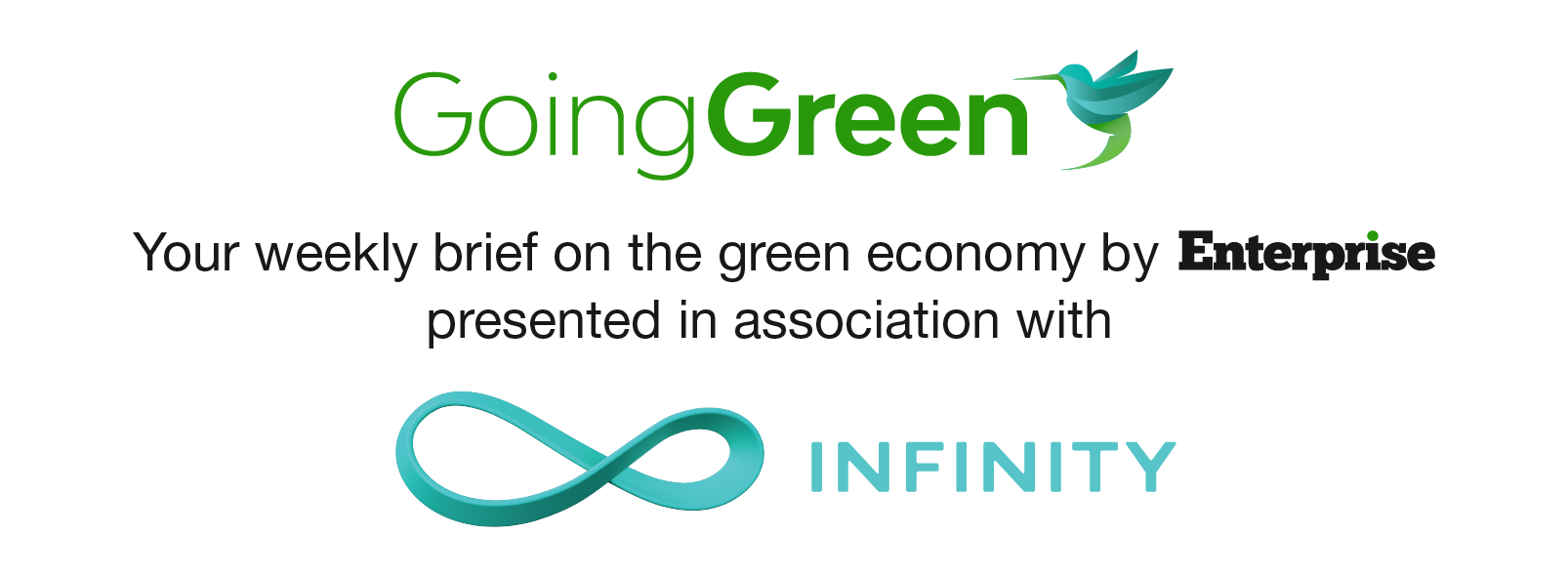
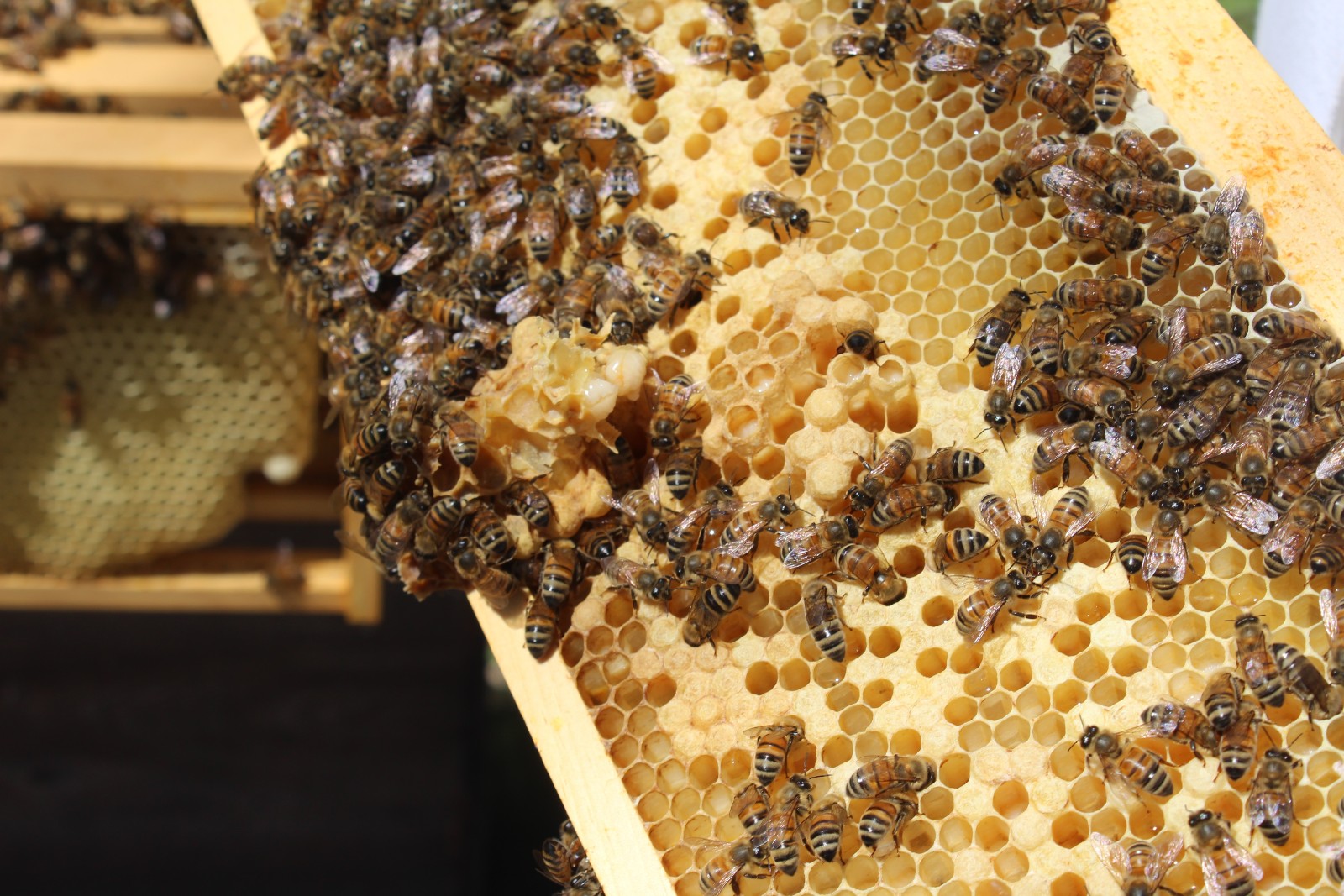
Climate change is putting Egypt’s honey industry under threat: Egypt’s production of honey, a food that has been deeply rooted in local culture for thousands of years, is coming under increasing threat. The country is an exporter, but faced with the existential challenge of climate change and rising economic problems at home, production is on the decline, industry sources tell Enterprise.
Bees play a crucial role in the healthy functioning of our agricultural systems: Bees are essential to our food systems and form the link between terrestrial ecosystems and modern agriculture. They also play an important role in fulfilling the UN’s Sustainable Development Goals by providing poor, rural and indigenous communities a source of income, according to the UN Food and Agriculture Organization (FAO).
And are key to the livelihoods of thousands in Egypt: The value of Egypt’s honey-related exports last year was USD 300 mn, according to Agriculture Ministry figures. That accounts for about 2 mn honey bee cells and 30k tons of honey being churned out by the some 25k families involved in the beekeeping industry, the figures show.
But climate change is threatening the industry: Honey production has slowed in recent years and the harvest season, which typically starts at the beginning of April and runs through to October, is now starting later in the year due to climate change, Younis Mahmoud, who owns Younis ِApiaries, tells us. “Production has dropped to about half its usual rate this season,” Mahmoud says. This is partially because of the unusual waves of cold weather that have been hitting the country in recent months and have persisted well into April, he explains. “If bees don’t collect nectar from flowers because of cold weather or strong winds then they start consuming the honey they’ve already produced.”
This has been hurting beekeepers for a few years now, Fathy Beheiry, head of the Arab Beekeepers Union tells us. “We’re not used to the extreme fluctuations in weather we’ve been seeing recently in Egypt. Sudden changes in temperature affects honey bee activity which ends up reducing production and increasing the risk of disease,” Beheiry says. But when it comes to measuring the scale of this problem, Beheiry, who has described the shortfall in production since the start of this year’s harvest season as moderate, says it's hard to say exactly how much has changed until the season is over.
The FAO has already sounded the alarm on the problem: The FAO has long warned of the risks posed by a downfall in pollinators around the world because of the threats facing bees. “The number of bees, pollinators and many other insects are declining in abundance due to unsustainable agricultural practices, pesticides, pests and pathogens, habitat destruction, and climate crisis,” Qu Dongyu, the organization’s director-general, has said previously.
Bee populations are already collapsing as a result of our changing climate, says Mohamed Habib, who owns El Habib Apiaries in El Beheira. “Seasons are changing, temperatures are fluctuating throughout the day and changing wind speeds and direction are all contributing to the collapse of bee populations and the outbreak of diseases like brood rot,” he says.
Habib is expecting beehives that would ordinarily produce 15 kg of honey will this year only have as little as 6 kg to harvest. Waleed Nashaat, CEO of Al Raheeq for Import and Export, which specializes in honey production, also expects a moderate harvest season this year, based on the industry’s preliminary figures.
Already, this year's citrus honey season “does not look promising," Ahmed Abdel Megeid, quality control manager at Imtenan tells us. Abdel Megeid has attributed his weak outlook on the season to be the direct consequence of climate change but cautions that it's still too early to make definitive judgements on the state of the industry right now.
Part of the problem also comes from the adaptation of plants to the changing climate. Bees depend on flowering plants as their primary source of nutrition, but many of the plants they rely on are experiencing biological changes that are already weakening colonies and could lead to widespread dying events, according to a study on climate change and honey bees.
Declining demand and rising costs are making things harder: Falling demand and the increase in production costs are exerting further stress on the industry, leaving beekeepers struggling to set prices that are commensurate with their rising production costs. “Since the start of 2022 and the subsequent increase in prices and the cost of living, we’ve seen demand for honey go down by some 15-20% from average levels,” Abdel Meguid tells us. “Egyptian honey has typically been really high quality and very well-priced … but [this year] we’ve seen an extraordinarily high number of beekeepers looking to sell their beehives because of the losses they’ve been sustaining,” Nashaat says.
Then there are supply-side problems: Disease has caused large portions of bee colonies to die out, making matters even more difficult for producers. The Agriculture Ministry should support honey producers in fighting off disease infecting bees and provide them the tools necessary to keep things under control, Nashaat said.
How do we soften the impact of climate change on honey production? Finding better and more climate-resistant bee species could be a start. But there are also beekeeping practices that could be improved by more training and an expansion in access to safe treatment for sick bees, says Beheiry. There could even be some promise in resuming the use of a particularly resilient species of ancient bee called the “Apis mellifera lamarckii,” alongside working to genetically modify other species in Egypt, he adds.
Expanding agricultural diversity: Growing more diverse flowering plants like Sidr, Buckthorn or Eucalyptus trees would go a long way in helping revitalize the beekeeping industry in Egypt, according to Beheiry. Biologically enhanced plant species designed to withstand a harsher climate could become part of an adaptation strategy, Mohamed Fathallah Abdel Rahman, head of the bee research department at the Agricultural Research Center and author of the report, tells us.
Fighting off pests and other naturally occurring threats and finding disease resistant DNA in bees could also be helpful, he said.
Incentives and regulation: Honey producers could use some additional government support in creating an official database for beekeepers, setting up new export markets and adding more export incentives for local producers, Beheiry adds. Efforts to construct a more centralized beekeeping community in coordination with the Agriculture Ministry is already underway, says Habib.
The government has already started working on expanding agricultural diversity through the 2015 launched 1.5 mn Feddan project which aims to widen the country’s agricultural diversity by some 20%, reduce nutritional deficiencies and expand the total area of inhabitable land. Other programs like Egypt’s Future for agricultural production and the Toshka El Khair project are angling towards similar ends.
The creative option — Mangrove Honey: Among the more creative tools being employed to mitigate the effects of coastal erosion on the country might have potential to help support the ailing honey industry in the future. The government’s 2020 project to plant mangrove nurseries on 500 feddans along the Red Sea coasts had inadvertently cultivated an especially welcoming environment for honey bees. One apiary had set up shop in close proximity to a Mangrove hotspot. “The advantage these plants have to offer is that they flower during a very sensitive time in a bee’s life cycle, extending from December through April, which is an ideal time for bees that typically lack alternative sources of nectar during this time of the year,” Mahmoud Abbas, an instructor in the Plant Protection department at the South Valley University who also manages the apiary, told us.
And the honey is clean: Though the beekeeping outfit has ultimately halted its operations on the Red Sea coast this year due to covid-19 and a lack of alternatives to the few Mangrove trees in the area, Mangrove honey has been found to contain almost no trace of pollutants or chemical additives, compared to most other sources of nectar in the country, and could have future potential.
Your top green economy stories for the week:
- Safer paints and varnishes: Colorless paints and varnishes are required to have a maximum of 100 parts per mn lead, while colored ones can have a maximum of 5k ppm lead, as per a new government decision. (Statement)
- Suez Cement is set to launch Egypt’s first waste heat recovery facility in its Helwan cement plant in 2023 under a plan to slash CO2 emissions and increase efficiency. (CemNet)
- Egyptian General Petroleum Corporation (EFPC) subsidiary Petrosafe will be the first in the country to use Baker Hughes’ flare.IQ technology to reduce emissions from oil and gas flaring at its refineries. (Statement)
???? CALENDAR
OUR CALENDAR APPEARS in two sections:
- Events with specific dates or months are right here up top
- Events happening in a quarter or other range of time with no specific date / month appear at the bottom of the calendar.
JULY
July: A law governing ins. for seasonal contractors will come into effect.
July: Actis’ expected sale of its majority stake in Lekela to Infinity and Masdar’s Infinity Power.
First week of July: Fuel pricing committee meets to decide quarterly fuel prices.
First week of July: The national dialogue called for by President Abdel Fattah El Sisi kicks off.
8 July (Friday): Arafat Day.
9-13 July (Saturday-Wednesday): Eid Al Adha, national holiday.
21 July (Thursday): European Central Bank monetary policy meeting.
26-27 July (Tuesday-Wednesday): Federal Reserve interest rate meeting.
30 July (Saturday): Islamic New Year.
Late July-14 August: 2Q2022 earnings season.
AUGUST
August: Work to extend the capacity of the Egypt-Sudan electricity interconnection to 600 MW to be completed.
August: Sharm El Sheikh will host the African Sumo Championship.
18 August (Thursday): Central Bank of Egypt’s Monetary Policy Committee meeting.
SEPTEMBER
September: Egypt will display its first naval exhibition, Naval Power.
September: Estate Waves Egypt real estate exhibition through metaverse technology.
September: Central Bank of Egypt’s Innovation and Financial Technology Center to launch incubator for 25 fintech startups.
September: The sixth session of the Egyptian-German Joint Economic Committee.
September: A delegation from Germany’s Aldi will visit Egypt to look at potential investments.
6-9 September (Tuesday-Friday): Gate Travel Expo 2022, El Kobba Palace, Cairo.
8 September (Thursday): European Central Bank monetary policy meeting.
18 September (Sunday): Deadline for brokerage firms, asset managers and financial advisors to register with the Egyptian Securities Federation.
20-21 September (Tuesday-Wednesday): Federal Reserve interest rate meeting.
22 September (Thursday): Central Bank of Egypt’s Monetary Policy Committee meeting.
26–27 September (Monday-Tuesday): The Africa Women Innovation and Entrepreneurship Forum (AWIEF) at the Cairo Marriott Hotel.
OCTOBER
October: Air Sphinx, EgyptAir’s low-cost subsidiary to commence operations.
October: Fuel pricing committee meets to decide quarterly fuel prices.
October: The finals of the IEEE’s Arab IoT & AI Challenge will be held during GITEX Technology Week in Dubai next October, with participants from 11 Arab countries.
1 October (Saturday): Use of Nafeza becomes compulsory for air freight.
6 October (Thursday): Armed Forces Day, national holiday.
8 October (Saturday): Prophet Muhammad’s birthday, national holiday.
10-16 October (Monday-Sunday): World Bank and IMF annual meetings chaired by CBE Governor Tarek Amer, Washington, DC.
18-20 October (Tuesday-Thursday): Mediterranean Offshore Conference, Alexandria, Egypt.
27 October (Thursday): European Central Bank monetary policy meeting.
Late October-14 November: 3Q2022 earnings season.
NOVEMBER
November: Cairo Water Week 2022.
1-2 November (Tuesday-Wednesday): Federal Reserve interest rate meeting.
3 November (Thursday): Central Bank of Egypt’s Monetary Policy Committee meeting.
3-5 November (Thursday-Saturday): Egypt Fashion Week.
4-6 November (Friday-Sunday): The Autotech auto exhibition kicks off at the Cairo International Exhibition and Convention Center.
6-18 November (Sunday-Friday): Egypt will host COP27 in Sharm El Sheikh.
7-13 November (Mon-Sun): The International University Sports Federation (FISU) World University Squash Championships, New Giza.
21 November-18 December (Monday-Sunday): 2022 Fifa World Cup, Qatar.
13-14 December (Tuesday-Wednesday): Federal Reserve interest rate meeting.
15 December (Thursday): European Central Bank monetary policy meeting.
DECEMBER
22 December (Thursday): Central Bank of Egypt’s Monetary Policy Committee meeting.
December: The Sixth of October dry port will begin operations.
JANUARY 2023
January EGX-listed companies and non-bank lenders will submit ESG reports for the first time.
January: Fuel pricing committee meets to decide quarterly fuel prices.
MAY 2023
22-26 May (Monday-Friday): Egypt will host the African Development Bank (AfDB) annual meetings in Sharm El Sheikh.
EVENTS WITH NO SET DATE
2Q2022: The Sovereign Fund of Egypt will invest in two companies in the financial inclusion and non-banking financial services sectors.
End of 2Q2022: The Financial Regulatory Authority’s new Ins. Act should be approved.
End of 2Q2022: Door for bidding for the contract to redevelop the site of the former National Democratic Party HQ to close.
1H2022: Target date for IDH to close its acquisition of 50% of Islamabad Diagnostic Center.
1H2022: The government will respond to private companies’ bids to build desalination plants.
1H2022: Egypt’s second corporate green bond issuance expected to be announced.
End of 1H2022: Emirati industrial company M Glory Holding and the Military Production Ministry will begin the mass production of dual fuel pickup trucks that can run on natural gas.
2H2022: The inauguration of the Grand Egyptian Museum.
2H2022: IEF-IGU Ministerial Gas Forum, Egypt. Date + location TBA.
2H2022: The government will have vaccinated 70% of the population.
3Q2022: Ayady’s consumer financing arm, The Egyptian Company for Consumer Finance Services, to release its first financing product.
End of 2022: e-Aswaaq’s tourism platform will complete the roll out of its ticketing and online booking portal across Egypt.
2023: Egypt will host the Asian Infrastructure Investment Bank’s Annual Meeting of the Board of Governors in 2023.
**Note to readers: Some national holidays may appear twice above. Since 2020, Egypt has observed most mid-week holidays on Thursdays regardless of the day on which they fall and may also move those days to Sundays. We distinguish above between the actual holiday and its observance.
Enterprise is a daily publication of Enterprise Ventures LLC, an Egyptian limited liability company (commercial register 83594), and a subsidiary of Inktank Communications. Summaries are intended for guidance only and are provided on an as-is basis; kindly refer to the source article in its original language prior to undertaking any action. Neither Enterprise Ventures nor its staff assume any responsibility or liability for the accuracy of the information contained in this publication, whether in the form of summaries or analysis. © 2022 Enterprise Ventures LLC.
Enterprise is available without charge thanks to the generous support of HSBC Egypt (tax ID: 204-901-715), the leading corporate and retail lender in Egypt; EFG Hermes (tax ID: 200-178-385), the leading financial services corporation in frontier emerging markets; SODIC (tax ID: 212-168-002), a leading Egyptian real estate developer; SomaBay (tax ID: 204-903-300), our Red Sea holiday partner; Infinity (tax ID: 474-939-359), the ultimate way to power cities, industries, and homes directly from nature right here in Egypt; CIRA (tax ID: 200-069-608), the leading providers of K-12 and higher level education in Egypt; Orascom Construction (tax ID: 229-988-806), the leading construction and engineering company building infrastructure in Egypt and abroad; Moharram & Partners (tax ID: 616-112-459), the leading public policy and government affairs partner; Palm Hills Developments (tax ID: 432-737-014), a leading developer of commercial and residential properties; Mashreq (tax ID: 204-898-862), the MENA region’s leading homegrown personal and digital bank; Industrial Development Group (IDG) (tax ID:266-965-253), the leading builder of industrial parks in Egypt; Hassan Allam Properties (tax ID: 553-096-567), one of Egypt’s most prominent and leading builders; and Saleh, Barsoum & Abdel Aziz (tax ID: 220-002-827), the leading audit, tax and accounting firm in Egypt.






